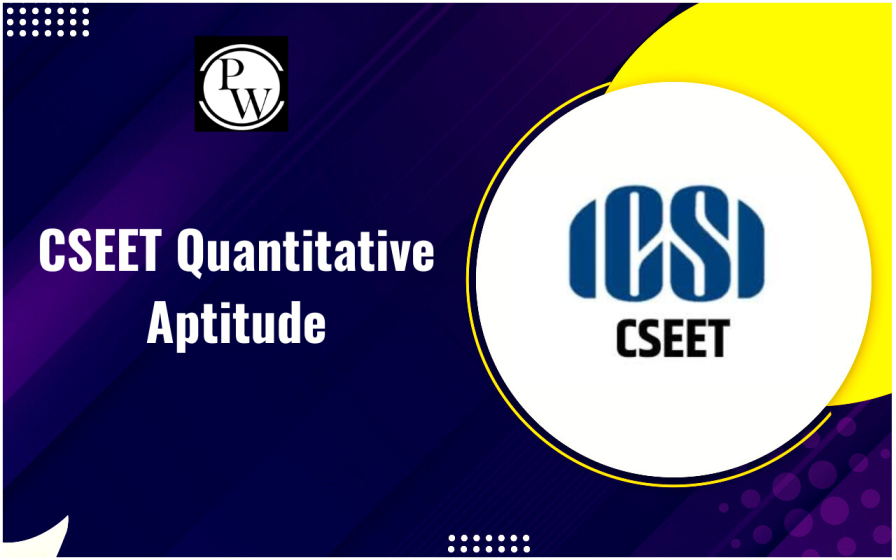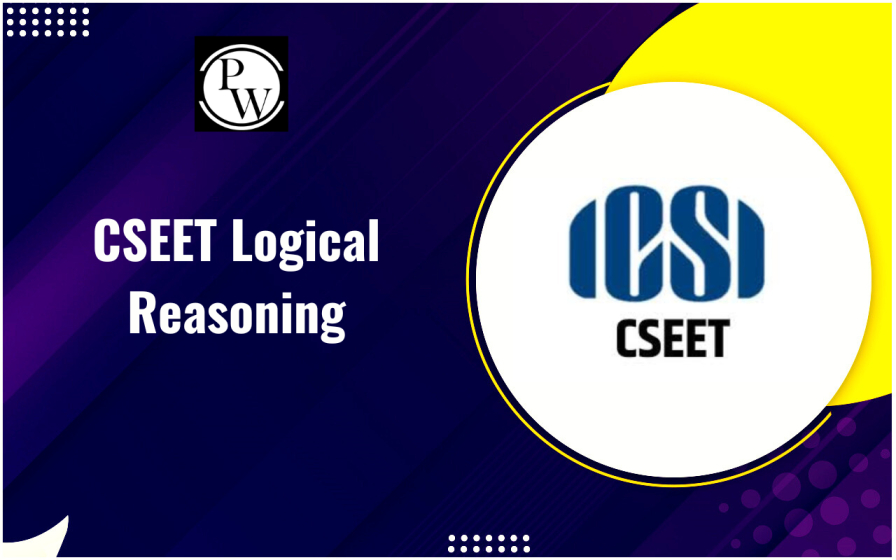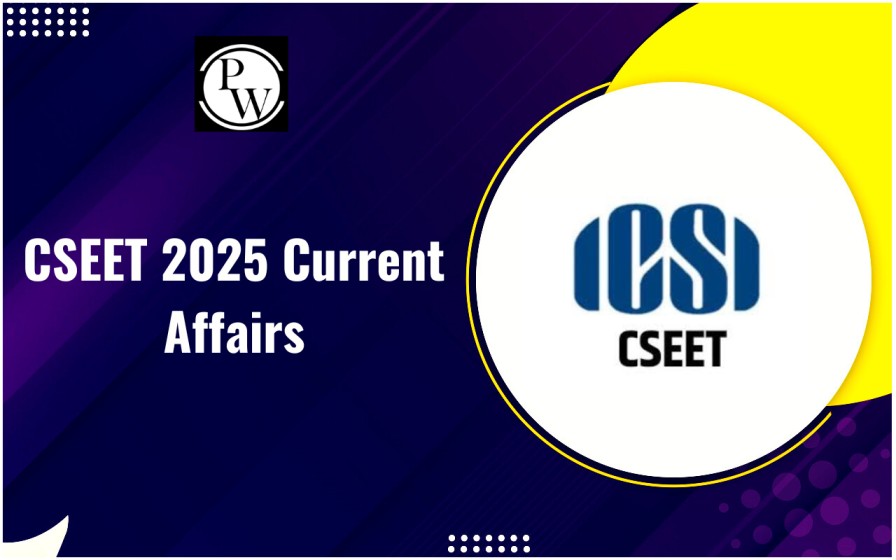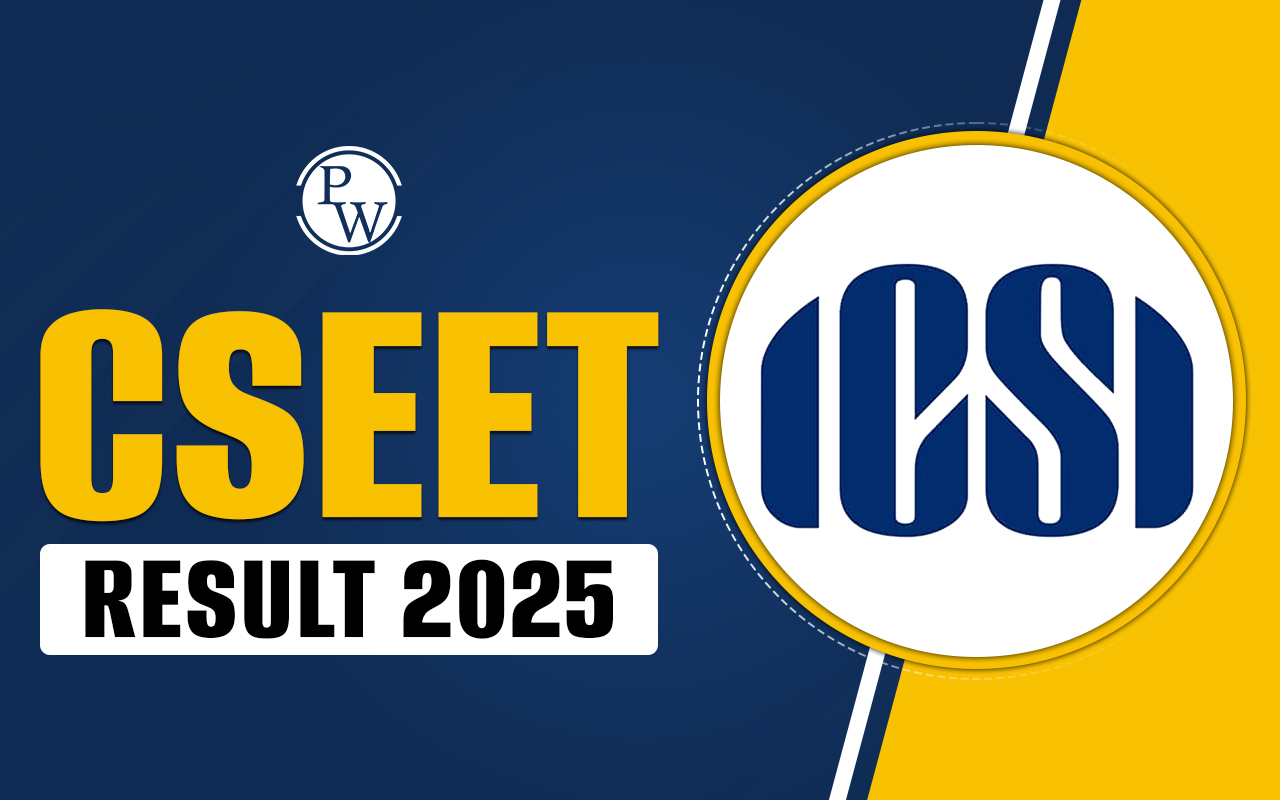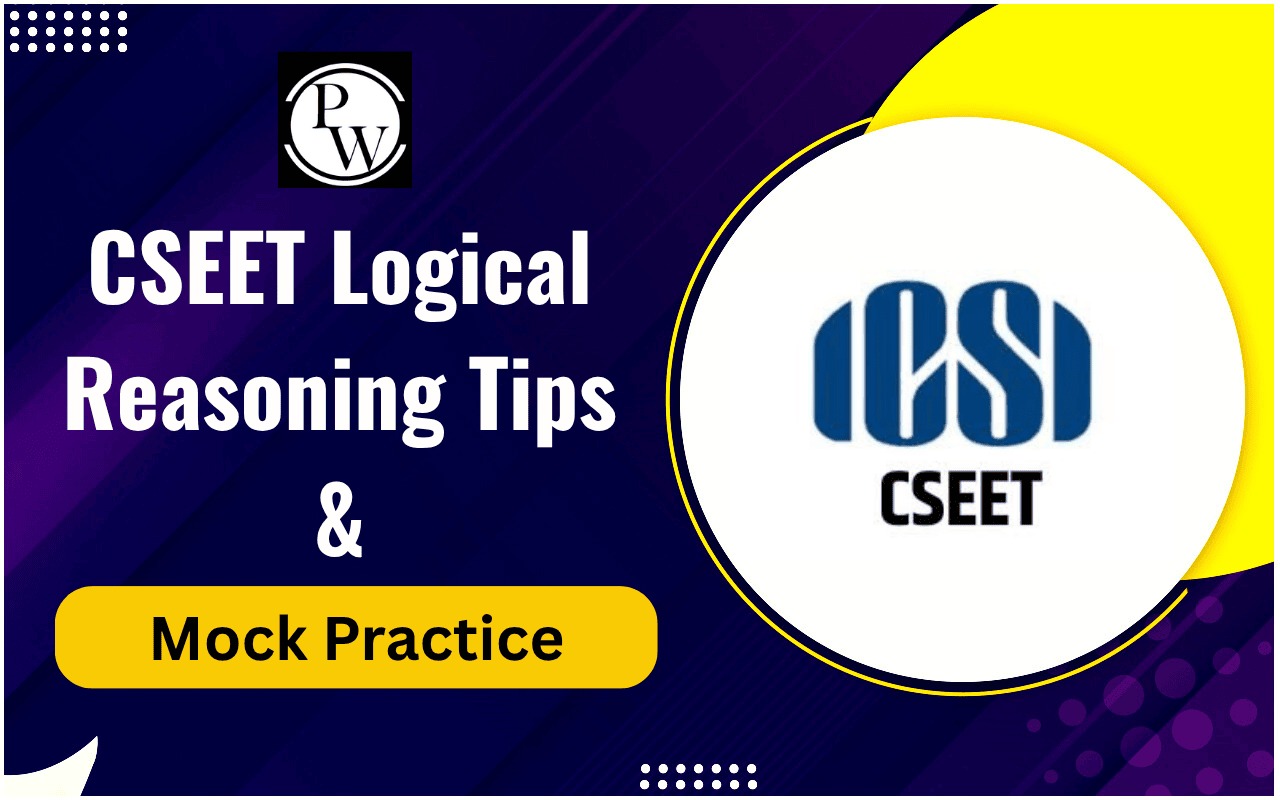
CSEET Logical Reasoning plays an important role in the Company Secretary Executive Entrance Test. It is designed to test how well a student can think logically and solve problems step by step. Many students feel that logical reasoning is difficult, but in reality, it becomes easier when the concepts are understood and practiced regularly. The subject requires focus, clear thinking, and the ability to apply simple rules.
Below, we’ve explained the CSEET Logical Reasoning syllabus, the weightage of marks, the types of questions, study material, preparation strategies, and tips to solve questions quickly.
CSEET Logical Reasoning Syllabus
The syllabus of CSEET Logical Reasoning covers different topics that are asked in the exam. Each topic helps students improve their problem-solving ability and analytical skills. Regular practice of all these topics is important for scoring well. Below, we’ve mentioned the CSEET logical reasoning syllabus:
| CSEET Logical Reasoning Syllabus | |
| Topic | Subtopics Covered |
| Coding-Decoding | Forward and backward alphabet positions, substitution method, word coding, and number coding |
| Number Series | Constant difference, increasing and decreasing difference, squares, cubes, alternate series |
| Calendar and Clock | Day-date questions, time-related reasoning |
| Cause and Effect | Identifying cause and result in given statements |
| Syllogism | Statements and conclusions with Venn diagrams |
| Assumptions and Inferences | Reading and logical conclusions |
| Other Topics | Seating arrangement, puzzles, and decision-making problems |
Weightage and Importance of Logical Reasoning in CSEET
Logical reasoning in CSEET gives marks that add to the final result. Students should know the weightage so that they can plan how much time to spend on this part while studying.
| CSEET Logical Reasoning Weightage | |
| Section | Marks |
| Logical Reasoning and Legal Aptitude (combined) | 50 |
| Logical Reasoning Alone | Around half of the section’s marks |
Importance of CSEET Logical Reasoning
Improves problem-solving ability: Logical reasoning questions are designed to test how fast and accurately a student can solve the problem. Regular practice of these questions builds critical thinking skills, which are useful not only in exams but also in real-life situations.
Helps in quick decision-making: In the exam, students should answer questions under time pressure. Logical reasoning builds the habit of making fast and correct decisions, which improves overall exam performance.
Increases overall score: Logical reasoning CSEET often contains direct and formula-based questions. With proper practice, students can answer them quickly and secure higher marks.
Builds base for future levels: The skills learned in CSEET Logical Reasoning are useful in higher levels of the CS course as well. It helps in dealing with analytical case studies and decision-making questions.
CSEET Logical Reasoning Questions Types
There are different types of CSEET Logical Reasoning questions. Understanding each type and practicing them regularly ensures confidence during the exam. Below, we’ve mentioned the CSEET Logical Reasoning Question Types:
-
Coding-Decoding Questions: In these questions, letters or words are changed using certain rules. For example, adding +1 to each letter in the word SHUBH makes it TIVCI. Students need to understand the logic of forward and backward alphabet positions and apply it correctly.
-
Substitution Questions: In substitution, one word is given a different name. For example, if “book” is called “pencil” and “pencil” is called “mirror,” then a student has to answer questions using these new names. These questions test how well students can think beyond literal meanings.
-
Number Series Questions: These questions ask students to find the missing number in a sequence. The sequence may be based on a constant difference, increasing or decreasing difference, squares, cubes, or alternating series. Recognizing the pattern is the key to solving these quickly.
-
Calendar Questions: These questions test knowledge of days and dates. Students may be asked which day falls on a given date or which year has a similar calendar. Practicing formulas for these questions saves time in exams.
-
Cause and Effect Questions: In these questions, two statements are given, and students need to find out which one is the cause and which one is the result. They test logical understanding and the ability to link two events correctly.
CSEET Logical Reasoning Study Material
The right study material makes preparation more effective. Students should focus on material that is reliable and covers the complete syllabus.
| CSEET Logical Reasoning Study/Practice Material | |
| Study Material | Link |
| CSEET Official Study Material | Download Now |
| CSEET Official Mock Test | Download Now |
| CSEET Free Notes | Download Now |
CSEET Logical Reasoning Preparation Strategy
To prepare well for CSEET Logical Reasoning, students should follow a step-by-step strategy that builds both concepts and speed for the students. Below, we’ve mentioned the CSEET Logical Reasoning Preparation Strategy:
-
Learn Alphabet Positions: Students should know the position of each letter in both forward (A=1 to Z=26) and backward (Z=1 to A=26) order. This information is important for solving coding-decoding questions. Regular revision of alphabet positions will save time in exams.
-
Practice Coding-Decoding Daily: Students should pick different words and apply rules like +1, -1, or +2 to convert them. Daily practice of this topic make sure that no time is wasted in remembering formulas during the exam.
-
Solve Number Series Frequently: Students should practice series based on constant differences, squares, cubes, and alternating patterns. Identifying patterns quickly comes only with practice, and it helps in solving these questions without confusion.
-
Work on Syllogism with Venn Diagrams: Drawing simple Venn diagrams makes it easy to understand conclusions. This method is accurate and helps in avoiding mistakes. Regular practice of 10–15 questions a day can improve this skill.
-
Focus on Reading-Based Reasoning: Questions on assumptions and inferences require careful reading. Students should practice by reading short passages and identifying hidden meanings. This builds the ability to understand questions correctly in exams.
-
Take Mock Tests Regularly: Mock tests should be taken weekly to check speed and accuracy. They also give a real exam feel, which reduces nervousness on the final day.
-
Revise Important Topics Daily: Short revisions of rules, formulas, and common question types help in keeping concepts fresh. A quick 15-minute revision daily is more effective than long gaps between study sessions.
Tips to Solve Logical Reasoning Questions Quickly
Students often know the answers but lose time solving logical reasoning CSEET questions. By using the right tips, speed and accuracy both improve. Below, we’ve mentioned the tips to solve logical reasoning questions:
| Tips to Solve Logical Reasoning Questions | |
| Tip | Explanation |
| Memorize alphabet positions | Knowing positions in advance avoids wasting time in counting letters during coding-decoding questions. |
| Use tricks like “IZOTI” | This trick helps in remembering letters at multiples of five quickly, which saves valuable exam time. |
| Identify the pattern before solving | In number series, students should look for differences, squares, or alternate sequences before attempting the next number. This reduces errors. |
| Eliminate wrong options | Instead of solving from the start, students should remove obviously wrong options, which increases the chance of finding the right answer quickly. |
| Practice with a timer | Regular timed practice builds exam speed and ensures that questions are answered within the given time. |
| Learn formulas for calendars | Writing down and practicing simple formulas for days and dates helps in answering these questions without confusion. |
CSEET Logical Reasoning is a scoring subject if prepared in the right way. It does not require memorizing large amounts of theory. Instead, it requires understanding the logic and practicing questions regularly. By focusing on the CSEET logical reasoning syllabus, solving different logical reasoning questions CSEET, and using proper study materials, students can score well in this part of the exam.
CSEET Logical Reasoning November 2025 FAQ
What is CSEET Logical Reasoning, and why is it important?
How many marks are given to CSEET Logical Reasoning?
What are the main topics in the CSEET logical reasoning syllabus?
How should I prepare for logical reasoning questions CSEET?


